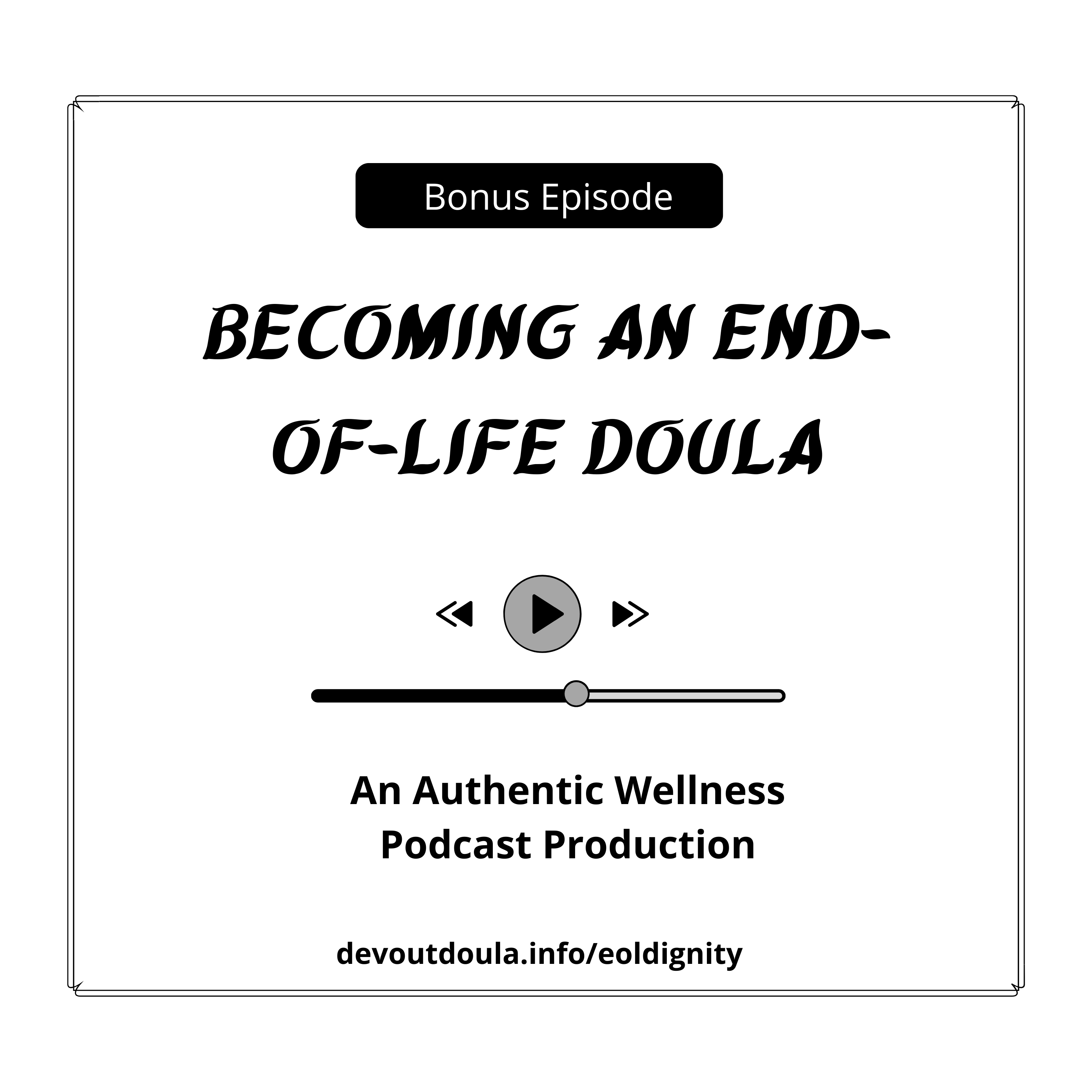Nov 07 2022 24 mins
What is an end-of-life doula? A person who works with clients who have received a terminal diagnosis. A doula working in this capacity spends time with the dying person for a number of reasons. It could be to help them write about their life, keep them company, to support the family members as they begin to grieve or help prepare the atmosphere for their departure.
Who can become an end-of-life doula? Anyone with an interest in helping others pass peacefully can become a doula. While no formal training is necessary, there are courses and certifications available to teach and explain situations you may not encounter often.
When should you reach out to an end-of-life doula for service? Just like with birth, it’s never too early to reach out for services. As soon as you have been informed of your diagnosis, you can start interviewing doulas to see how you mesh.
Where can you perform doula services? You can perform services wherever your clients are or the location where they plan to spend their final moments. Some clients choose their homes, a hospice facility, a hospital room, or in nature.
Why become an end-of-life doula? As morbid as talking about death may seem, it is necessary. In particular, I became a doula because I want to help people die with dignity. I want to support clients as they plan their vigils, capture their legacy using audio or video, and help them work through any unfinished business. Since I am also a birth doula, it is not lost on me that some babies are born sleeping and I want to fully understand how to support a person that is engulfed in grief.
How can a doula help me? I cannot answer this question in its entirety, but I can give you a few examples of what we do. The beauty of this work is that every client has different wishes and they are all beautiful.
Services Provided by End-of-Life Doulas
- Deep Listening - many times when a terminal diagnosis is received, friends and family start to offer endless amounts of advice, encouragement, and condolences. That’s not usually what a dying person wants. This is usually the time when a dying person sits with their thoughts and when that person speaks (s)he would like to be heard. There is a lot of self-examination and exploration of the meaning of their life. There are also events that they aren’t very proud of; the things under the RUGS. The RUGS of life are Regrets, Unfinished business, Guilt, and Shame. A doula will listen as the client processes the events that they want to make peace with. The doula holds no bias and casts no judgments. Their purpose is to support the client to unburden themselves in order to facilitate a peaceful transition.
- Vigil Planning - In my experience, it works best to plan the vigil with the client as soon as you can. This way, they are still coherent and there is no question from family or friends about anything that is requested. As with birth, the doula is there to advocate for the client. A dying person’s wishes should be honored even though they won’t be there. The client is free to incorporate traditions from their family, culture, and religion. Some things that should be considered during vigil planning are:
- The lighting in the room - dimly lit, dark
- The smell of the room - lavender, mint, pine
- Music - gospel, soft jazz, easy listening
- Who should be in the room during the transition
- Should medications continue when the time is near or proceed undisturbed?
After the transition, these things should be considered:
- What should the body be covered with? - a favorite blanket, sheet
- Should any final words be shared by the doula
- How long should they wait until the body is moved
- Should someone stay with the body until it is moved
- Can the body be touched by family and friends
These are a few examples of things to consider for the vigil plan. The possibilities are endless. There are even times when a vigil or death ritual is held when the client is well enough to participate.
- Processing Grief - As an end-of-life doula you will encounter grief. There will be grief from the person in transition as well as grief from their family and friends. The dying person may also be in shock because they are preparing for death at such a young age. Grief has the ability to make people angry. The client may be angry because of the diagnosis. Family and friends may be angry because their time with their loved one will be cut short. As an end-of-life doula, you have a unique perspective on the transition. The doula is both an outsider and an insider when processing grief. The doula can share information they were asked to keep confidential until this moment. Sharing these stories, videos, and final thoughts will provide the mourners with new perspectives on the situation. If referrals to outside services are needed, the doula can provide the necessary information.
A doula can be a great addition to the team that provides care for a dying person. It’s a good idea to have a person whose role is to provide comfort. As a society, we should normalize being comfortable with death as we are with birth. One cannot exist without the other.
